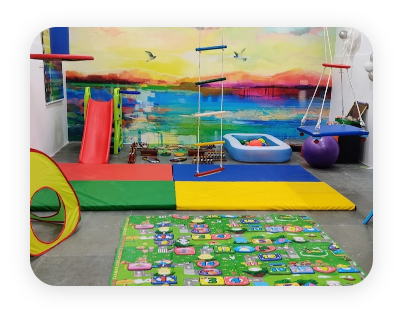

Does your child need
Behavioural
Therapy

Self-Regulation:
Teaches self-control and coping strategies.

Positive Behavior:
Encourages and reinforces desirable behaviors.

Stress Management:
Helps handle anxiety and stress.

Parent Training:
Guides parents on effective strategies.
What we do in behavioral therapy (ABA Therapy) ?
Behavioral therapy is a way to tackle tough behaviors. We first figure out what’s going on and then use practical steps to help change those behaviors into better ones.

Understanding the Issue
First, we take time to learn about your child’s specific behavior challenges and needs.

Practical Solutions
We then use effective techniques to help improve or change the behaviors that are causing problems.

Building Skills
We work on teaching your child useful skills that will help them handle situations better and build confidence.

Guiding Parents
We also provide support and advice for parents to help you manage and encourage positive behavior at home.

Behavior therapy procedure
Behavioral management focuses on establishing clear guidelines and using consistent encouragement to guide actions.

Consult with Our Doctor
Expert guidance tailored to your needs.

40 minutes daily therapy sessions
Focused, consistent therapy for steady progress.

360 degree communication loop
Seamless collaboration between patient, family, and healthcare providers.
Advantages of behavioral therapy
Behavioral therapy boosts communication, encourages positive actions, and helps with personal growth.
Improves Communication
Helps kids express themselves and understand others better.
Encourages Positive Behavior
Focuses on developing good habits and making positive choices.
Fosters Growth
Helps kids develop and thrive beyond just solving problems.
Improves Self-Control
Helps children develop better control over their impulses and actions.
Advantages of behavioral therapy
Behavioral therapy boosts communication, encourages positive actions, and helps with personal growth.
Improves Communication
Helps kids express themselves and understand others better.
Encourages Positive Behavior
Fosters Growth
Helps kids develop and thrive beyond just solving problems.
Improves Self-Control
Helps children develop better control over their impulses and actions.
Video of behavioral therapy
Frequently asked questions
The time it takes to notice the effect of behavioral therapy can differ; some notice it within weeks, and others within months. The speed is determined by the person and the case.
"Patience is not the power of waiting, but the power of having a good attitude while waiting."
To effectively track progress, establish clear, tangible objectives and have tools such as charts or logs to track change. Periodic reviews will then be used to evaluate progress made and make necessary adjustments.
It is best to re-read and re-write the plan every few weeks to maintain its effectiveness. Frequent visits enable the identification of any issues at an early stage and keep the strategy on track.
Potential disadvantages of behavioral methods could be added stress or frustration if the improvement is not rapid. It is essential to keep these effects in check and modify the method to prevent any adverse effect.
Effective methods of monitoring progress include setting clear, quantifiable goals, maintaining complete records, and frequent evaluation. Adjustments based on these evaluations can help to sustain progress.
Certificate &
Verification





We are also featured in















